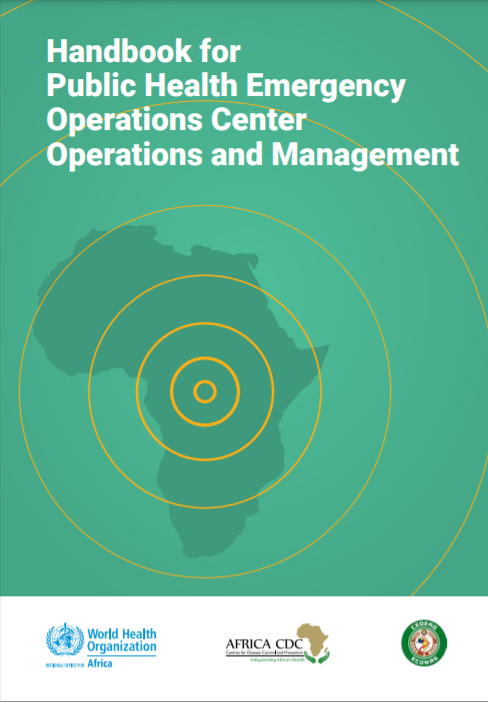1. Introduction
Public health emergencies arising from public health threats continue to be a major concern in Member States of the WHO African Region. Member States need to have functional public health Emergency Operations Centres (EOCs) to fulfill the International Health Regulations (IHR) obligations. EOCs play critical roles in helping Member States prepare for and respond to public health emergencies.
A Public Health EOC (PHEOC) serves as a hub for coordinating the preparation for, response to, and recovery from public health emergencies. The preparation includes planning, such as risk and resource mapping, development of plans and procedures, and training and exercising. The response includes all activities related to investigation, response and recovery. The PHEOC also serves as a hub for coordinating resources and information to support response actions during a public health emergency and enhances communication and collaboration among relevant stakeholders.
The “Framework for a Public Health Emergency Operations Centre” (PHEOC Framework) provides high level guidance for establishing or strengthening a functional PHEOC. The framework defines “plans and procedures” as one of the key components of the PHEOC and highlights that the PHEOC has different types of plans and procedures under the overarching national health emergency response plan. The PHEOC plans and procedures include: PHEOC Handbook, event- or hazard-specific response and management plans, and Incident Action Plan. This PHEOC Handbook describes objectives of the PHEOC, management, response coordination system, criteria and authority for activation, information management, communication from the PHEOC and procedures for operating a PHEOC. It will serve as the primary resource manual for PHEOC staff, containing necessary forms, role descriptions, Concept of Operations (CONOPS) and Standard Operating Procedures (SOPs).
